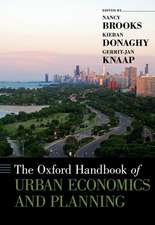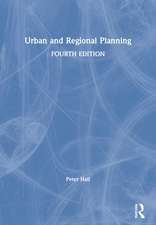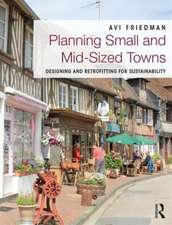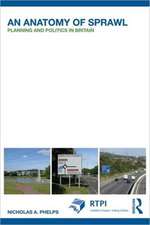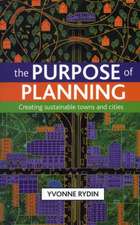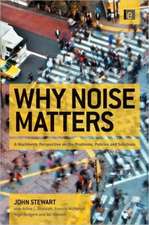The Politics of Community Building in Urban China: Chinese Worlds
Autor Thomas Heberer, Christian Göbelen Limba Engleză Paperback – 12 apr 2013
In particular, they argue that the central government has begun to restructure urban neighbourhoods, and has encouraged residents to govern themselves by means of democratic procedures. Heberer and Göbel also contend that whilst on the one hand, the central government has managed to bring the Party-state back into urban society, especially by tapping into a range of social groups that depend on it, it has not, however, managed to establish a broad base for participation. In testing this hypothesis, the book examines the rationales, strategies and impacts of this comeback by systematically analyzing how the reorganization of neighbourhood committees was actually conducted and find that opportunities for participation were far more limited than initially promised.
The book will be of interest to students and scholars of Chinese Studies, Development Studies, Urban Studies and Asian Studies in general.
| Toate formatele și edițiile | Preț | Express |
|---|---|---|
| Paperback (1) | 364.94 lei 6-8 săpt. | |
| Taylor & Francis – 12 apr 2013 | 364.94 lei 6-8 săpt. | |
| Hardback (1) | 1057.75 lei 6-8 săpt. | |
| Taylor & Francis – 29 mar 2011 | 1057.75 lei 6-8 săpt. |
Din seria Chinese Worlds
-
 Preț: 184.11 lei
Preț: 184.11 lei -
 Preț: 323.23 lei
Preț: 323.23 lei -
 Preț: 467.44 lei
Preț: 467.44 lei -
 Preț: 410.88 lei
Preț: 410.88 lei - 26%
 Preț: 763.69 lei
Preț: 763.69 lei - 24%
 Preț: 322.05 lei
Preț: 322.05 lei -
 Preț: 411.42 lei
Preț: 411.42 lei -
 Preț: 416.22 lei
Preț: 416.22 lei -
 Preț: 408.54 lei
Preț: 408.54 lei -
 Preț: 424.58 lei
Preț: 424.58 lei -
 Preț: 449.41 lei
Preț: 449.41 lei -
 Preț: 485.99 lei
Preț: 485.99 lei -
 Preț: 385.71 lei
Preț: 385.71 lei - 18%
 Preț: 1004.72 lei
Preț: 1004.72 lei -
 Preț: 449.41 lei
Preț: 449.41 lei - 18%
 Preț: 1327.80 lei
Preț: 1327.80 lei -
 Preț: 443.69 lei
Preț: 443.69 lei - 12%
 Preț: 299.52 lei
Preț: 299.52 lei -
 Preț: 199.65 lei
Preț: 199.65 lei -
 Preț: 456.52 lei
Preț: 456.52 lei - 30%
 Preț: 1015.56 lei
Preț: 1015.56 lei - 12%
 Preț: 299.52 lei
Preț: 299.52 lei -
 Preț: 416.22 lei
Preț: 416.22 lei -
 Preț: 481.79 lei
Preț: 481.79 lei -
 Preț: 194.76 lei
Preț: 194.76 lei -
 Preț: 410.46 lei
Preț: 410.46 lei - 28%
 Preț: 826.84 lei
Preț: 826.84 lei -
 Preț: 416.22 lei
Preț: 416.22 lei
Preț: 364.94 lei
Nou
Puncte Express: 547
Preț estimativ în valută:
69.83€ • 72.91$ • 57.79£
69.83€ • 72.91$ • 57.79£
Carte tipărită la comandă
Livrare economică 04-18 aprilie
Preluare comenzi: 021 569.72.76
Specificații
ISBN-13: 9780415855549
ISBN-10: 0415855543
Pagini: 208
Ilustrații: 5 black & white illustrations, 37 black & white tables, 1 black & white halftones, 4 black & white line drawings
Dimensiuni: 156 x 234 mm
Greutate: 0.34 kg
Ediția:1
Editura: Taylor & Francis
Colecția Routledge
Seria Chinese Worlds
Locul publicării:Oxford, United Kingdom
ISBN-10: 0415855543
Pagini: 208
Ilustrații: 5 black & white illustrations, 37 black & white tables, 1 black & white halftones, 4 black & white line drawings
Dimensiuni: 156 x 234 mm
Greutate: 0.34 kg
Ediția:1
Editura: Taylor & Francis
Colecția Routledge
Seria Chinese Worlds
Locul publicării:Oxford, United Kingdom
Public țintă
Postgraduate and UndergraduateCuprins
1 Introduction: Political Innovation without Democratization 2 Social Control, Social Fragmentation, and the Reimposition of State Power 3 Enhancing Infrastructural Power: Shequ Organization 4 Legitimating Narratives 5 Shequ Governance 6 New Schemes of Social Security: Urban Neighbourhood Communities as Institutions of Output Legitimacy 7 Attitudes 8 Conclusion
Notă biografică
Heberer, Thomas; Göbel, Christian
Recenzii
"The authors conduct a truly meaningful project as it contains many firsthand interviews based on several months of fieldwork in diverse regions of China. Despite this diversity, a coherent central theme is formed. The book is of interest to students and scholars of Chinese studies, development studies, urban studies, and Asian studies in general. Summing Up: Recommended. Upper-division undergraduate, graduate, and research collections." - CHOICE (April 2012)
'The Politics of Community Building provides a perceptive and intellectually lively guide to this evolving locus of urban governance.' - Benjamin L. Read, University of California, Santa Cruz; The China Journal (July 2013).
"Heberer and Göbel’s book is recommended for scholars interested in fields ranging from Asian or Chinese Studies to Urban or Development Studies. Practitioners in these fields will also find this book to be an essential resource." - W. Ma , Department of Public Administration, College of Management, Shenzhen University
'The Politics of Community Building provides a perceptive and intellectually lively guide to this evolving locus of urban governance.' - Benjamin L. Read, University of California, Santa Cruz; The China Journal (July 2013).
"Heberer and Göbel’s book is recommended for scholars interested in fields ranging from Asian or Chinese Studies to Urban or Development Studies. Practitioners in these fields will also find this book to be an essential resource." - W. Ma , Department of Public Administration, College of Management, Shenzhen University
Descriere
The aim of this book is to make sense of the recent reform of neighbourhood institutions in urban China. It builds on the observation that the late 1990s saw a comeback of the state in urban China after the increased economization of life in the 1980s had initially forced it to withdraw from society. The authors hypothesise that the central government has indeed displayed an impressive adaptive capacity with regards to the social problems in China's shequs. It has managed to bring the party-state back into urban society by enhancing its infrastructural power to provide better social welfare and improve public security. In testing this hypothesis, the book examines in great detail the rationales, strategies and impacts of this comeback by analyzing systematically how the reorganization of neighbourhood committees was actually conducted.

